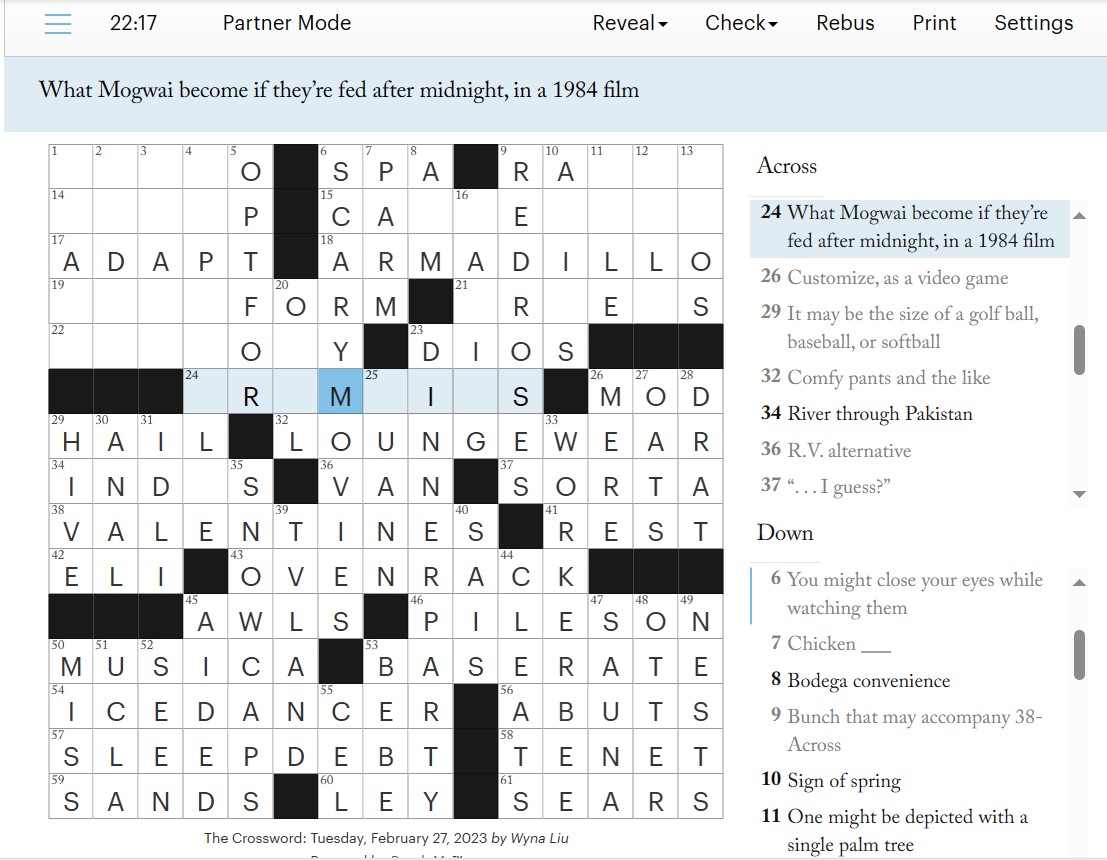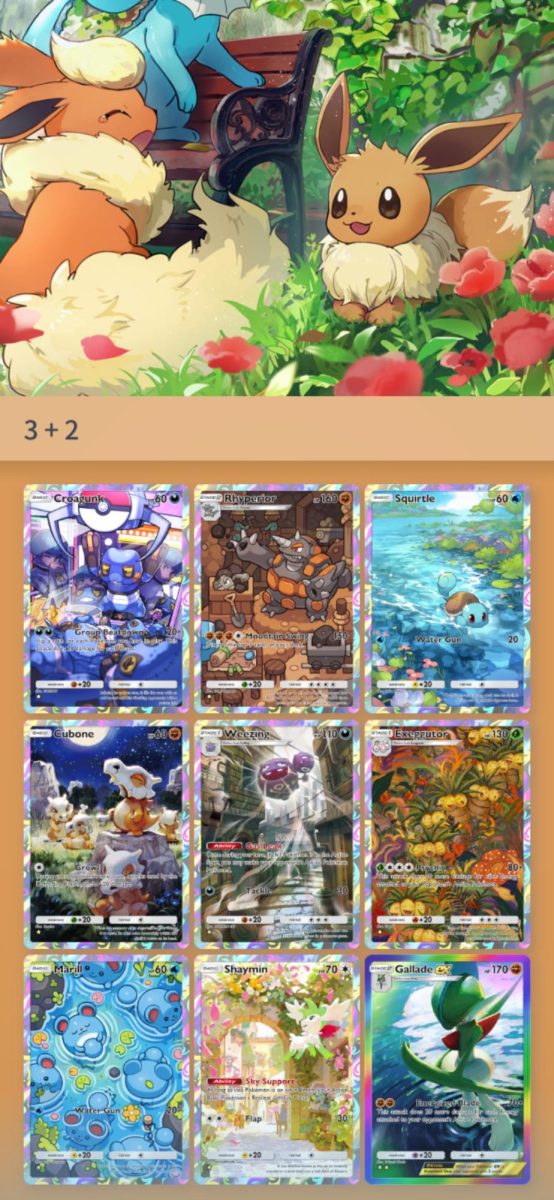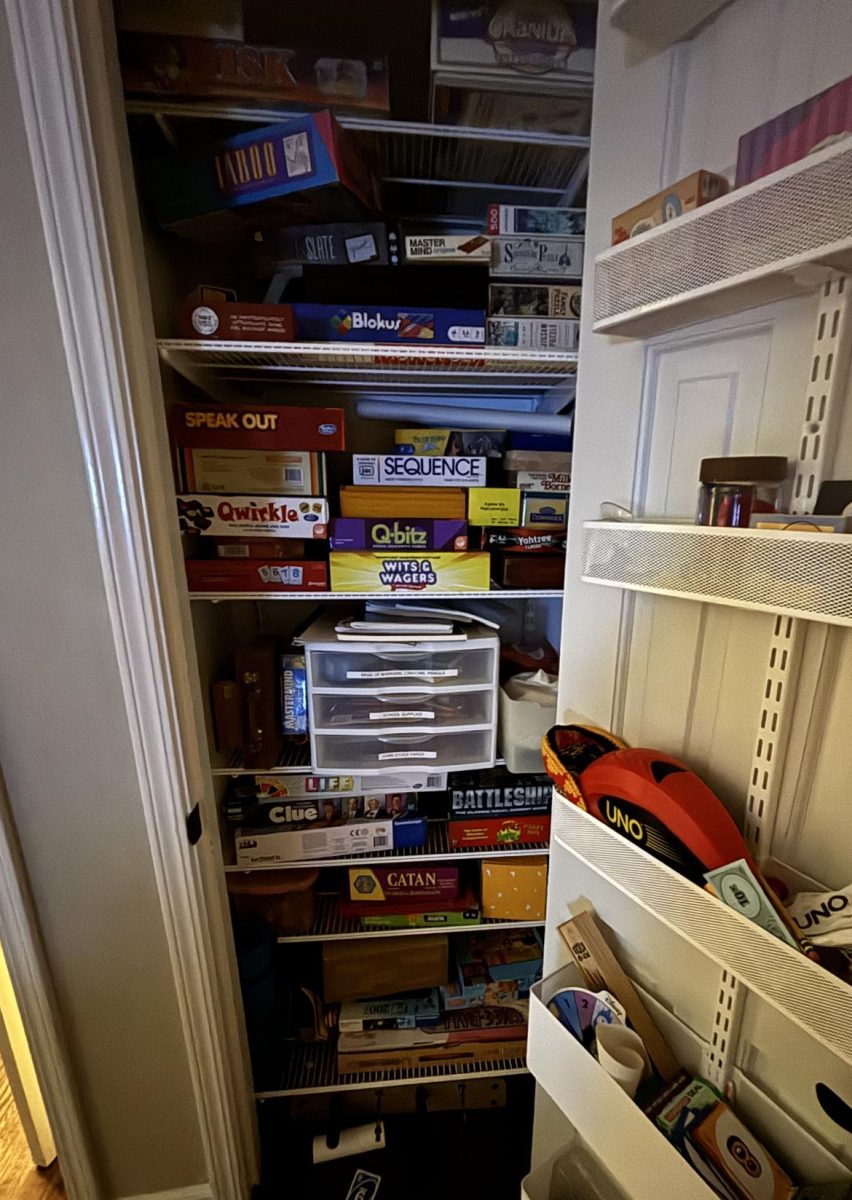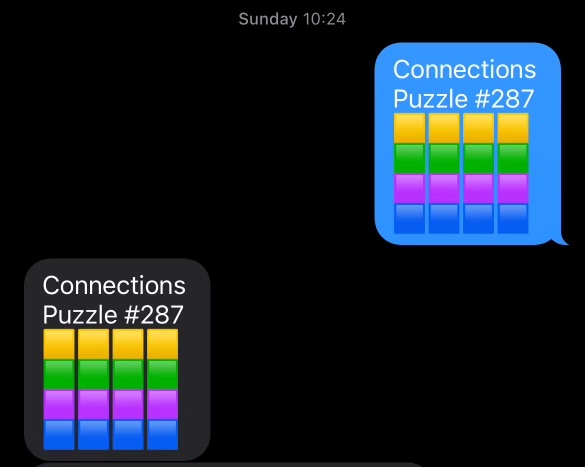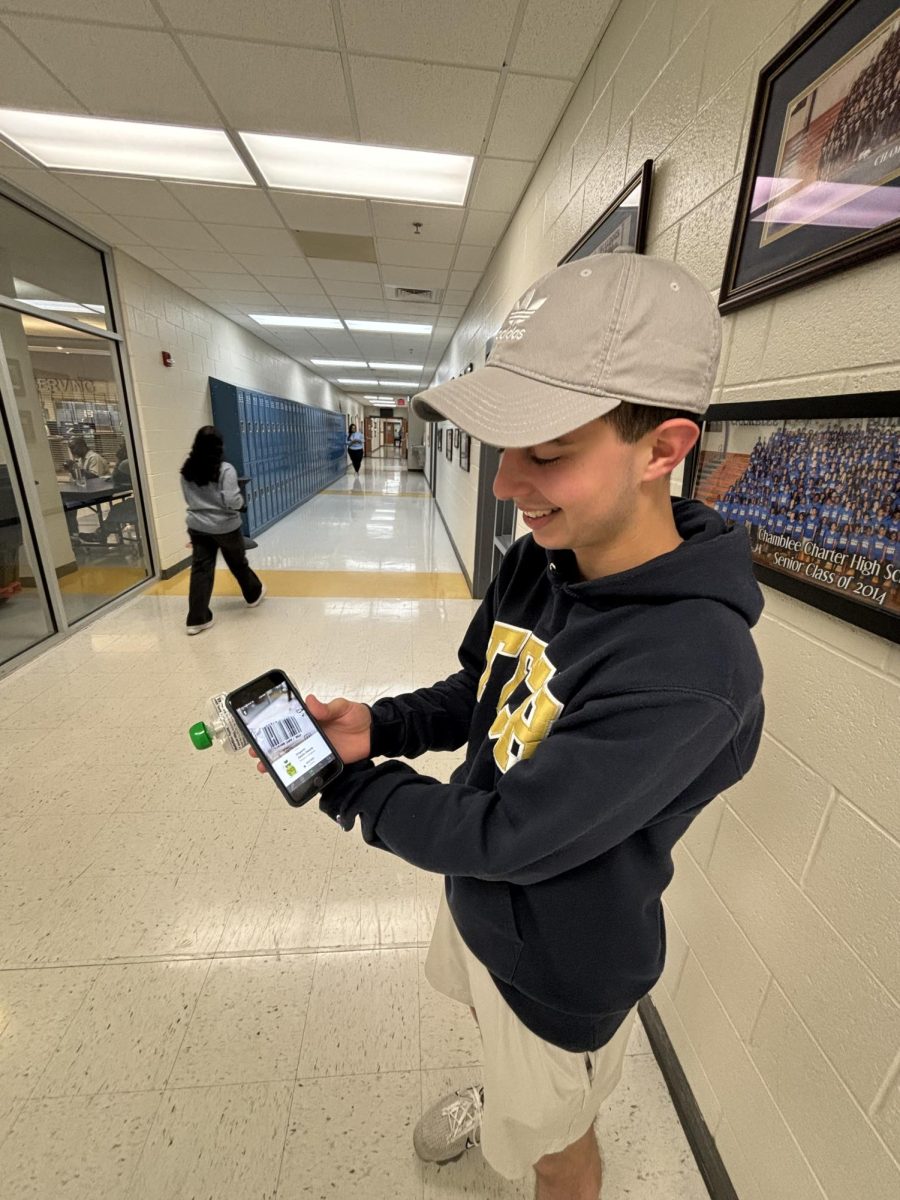No matter your job or day-to-day schedule, most of the time, there are ample times in a given twenty-four hours to be bored. It’s easy to spend this free time lamenting that it couldn’t be distributed more evenly (like to last week, where you had literally none), but it’s better to spend it in a way that’s even marginally more productive. My favorite way to productively waste time, something I discovered earlier this year, is the crossword.
My introduction to crosswords was the chance sighting of a classmate doing one during some downtime in class. My immediate reaction was a mix of surprise and shock. I don’t think I’d ever laid eyes on someone really doing a crossword before, and my mind had filled the unknown crossword demographic with an image of a grandma surrounded by cats and knitting needles. But this shock soon turned to curiosity, and I (and, apparently, many of my other classmates) found myself doing a crossword for probably the first time in my life. I was hooked.
Although time is undoubtedly precious, for many (especially students), there will always be days where it seems like there’s just too much. Particularly for students in DeKalb County, the favorite methods of wasting this time seem to be a revolving door as whoever controls the WiFi blocklist discovers the newest student favorite. Over time, even the steadfast, classic “educational” time-waster, CoolMathGames, has fallen. But crosswords haven’t been blocked as of yet, and if one of those mysterious people with access to said block list happens to read this, I’d plead that this doesn’t change any time soon.
Crosswords are probably the perfect mix of mental stimulation and fun, with nearly all having some difficulty yet not enough to become assignment-esque. For the beginner, crosswords like USA Today are perfect, with clues that are just past immediately intuitive, while the more experienced crossworder may enjoy more challenging puzzles from the likes of the New Yorker (whose “moderately challenging” crosswords should probably be renamed to “don’t even try”).
Those first stepping into the world of crosswords will also quickly find themselves gaining ground. You probably can’t go a few weeks without encountering at least one crossword that has an answer of “era”, “ETA”, “spa”, or “oar.” More obscure, but still exceedingly common, clues include references to the name of a break during church or what animators call a single frame. No matter how few crosswords you complete, I’d bet money on the fact that you’ll start nailing these by week three.
But these overused and somewhat annoying clues and answers often appear right next to much more challenging (and rewarding) hints that never fail to make you feel stupid. Often, these grid-spanning head-scratchers are turns of phrase or horrific puns that would make even a father pause in shock. Sometimes, you have to bide your time, waiting to fill in the whole grid to reveal the answer. Other times you get an incredibly satisfying (and in the case of an aforementioned pun, cringy) moment of realization.
All of these factors are a part of why crosswords have so quickly integrated themselves into my Monday-Friday schedule. I literally have no idea what I was doing before I discovered them. They’re certainly much better than spending all day flipping donuts on Papa’s Donuteria, and I credit this to their inherent ability to frustrate, which usually gives way to a proportional amount of satisfaction. For all of these reasons, I strongly encourage you to improve your time-wasting by playing the freshest old-person game of all time, the crossword.

